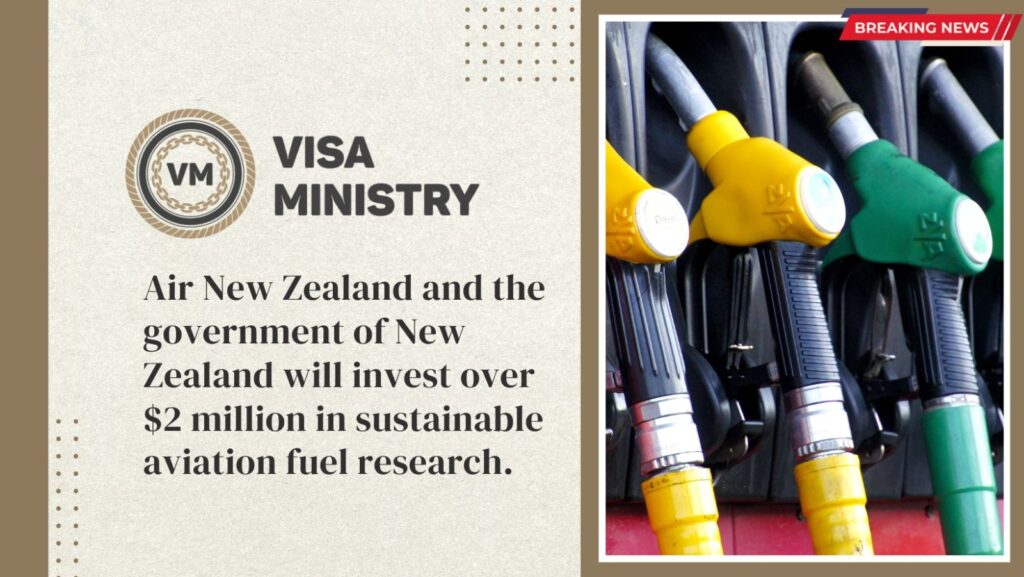Air New Zealand and the New Zealand Government have announced a $2 million plus investment in the next phase of sustainable aviation fuel (SAF) feasibility studies in Aotearoa.
The announcement was made today at the launch of the draught Tourism Environment Action Plan, which was hosted by Air New Zealand and attended by the Minister of Tourism, the Hon. Peeni Henare.
SAF is fuel produced from waste feedstocks, such as forestry residues, municipal waste, and used cooking oils, and can be ‘dropped in’ to existing aircraft refuelling systems without modification. SAF is produced with inputs and processes that result in substantially lower lifecycle greenhouse gas emissions than fossil jet fuel.
This new investment follows a one-year RFP process that invited innovators to demonstrate the viability of operating a commercial-scale SAF facility in New Zealand.
Along with government officials, the airline evaluated proposals from numerous international SAF manufacturers in order to determine what technologies are available internationally and how they could be adapted to the New Zealand environment.
In phase two, the working group is advancing two proposals: one with US-based LanzaJet and the other with Fulcrum BioEnergy. In the next phase, the technical, economic, supply chain, and environmental viability of establishing and operating a SAF production facility in New Zealand will be evaluated further.
Air New Zealand’s chief sustainability officer, Kiri Hannifin, expresses gratitude for the government’s assistance in advancing the feasibility of SAF production in New Zealand. “Our climate is deteriorating much more rapidly than anticipated. We must all take immediate and drastic action to protect what we cherish, including our land and all of its inhabitants.
“So much of what we depend on in Aotearoa, including tourism and agricultural production, is dependent on our magnificent natural assets. Air New Zealand plays a significant role in transitioning our economy to a future with reduced carbon emissions, and flying with SAF is a crucial component of this transition.
“Globally, SAF is in high demand but supply is limited. “Producing SAF commercially in New Zealand would not only help reduce the country’s emissions while creating jobs, regional economic development, and Mori and Iwi investment opportunities, but it would also provide energy security and independence, which New Zealand currently lacks.”
The second phase of SAF feasibility work will continue until the beginning of 2024.
Source: traveldailymedia

